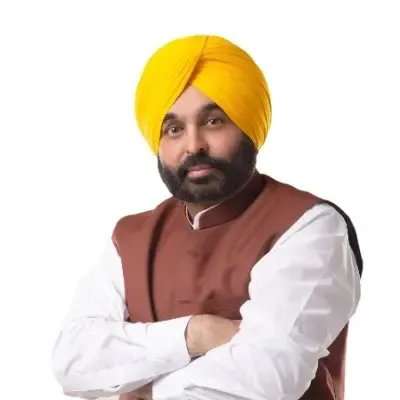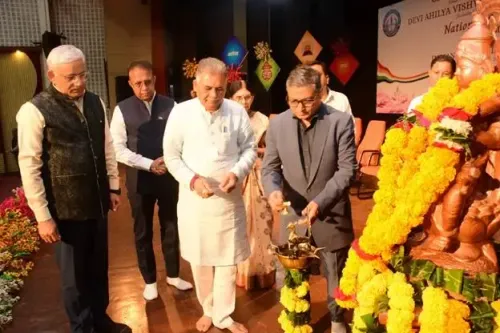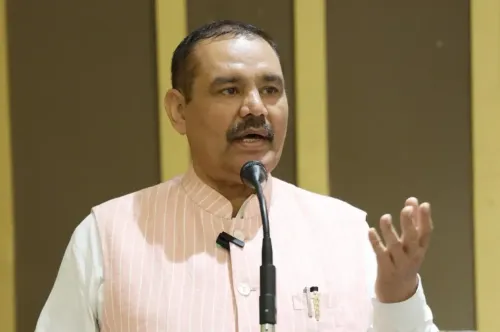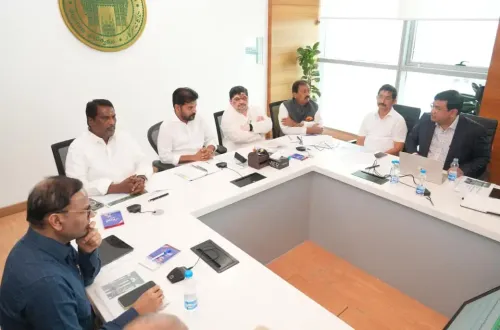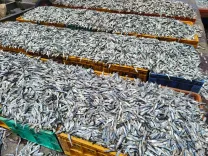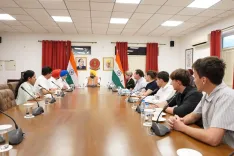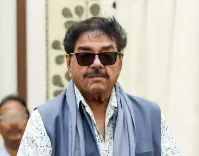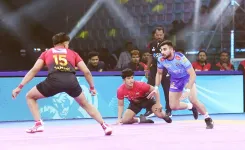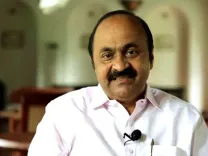Year in Review: Bengal's Disturbing RG Kar Incident of 2024 Sparks Widespread Protests Amid Allegations of Inadequate Investigation
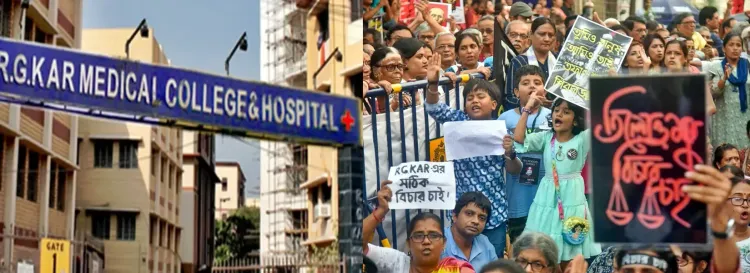
Kolkata, Dec 31 (NationPress) 2024 was a momentous year for West Bengal for numerous reasons, yet the event that sent shockwaves across the state and the nation was the horrific rape and murder of a female doctor at the state-run R.G. Kar Medical College & Hospital in Kolkata in August.
The subsequent series of events rendered the entire investigation a mere farce.
The troubling saga commenced on the morning of August 9, shortly after the victim's body was discovered in the seminar hall within R.G. Kar. According to the victim's parents, they received multiple calls from a woman claiming to be an Assistant Superintendent of the hospital, each time providing conflicting information.
“Initially she stated that my daughter was critically ill. Then she claimed that my daughter had taken her own life,” the victim's father recounted to the media after the tragedy.
An audio clip of this alleged conversation quickly gained traction on social media, lending credence to the claims made by the victim's family. However, IANS could not verify the authenticity of the viral audio.
The Kolkata Police initiated the investigation and soon apprehended the main suspect, civic volunteer Sanjay Roy. Yet, significant flaws in the initial investigation process began to emerge. These included failure to properly secure the crime scene, allowing numerous unauthorized individuals to enter, and deficiencies in the post-mortem process that raised suspicions of evidence tampering.
In response to these developments, civil society erupted in outrage, leading to widespread protests across the state, primarily spearheaded by members of the medical community.
Gradually, this wave of protests spread to other states, and similar demonstrations by non-resident Indians in various countries also began to surface.
The ongoing protests took a dramatic turn in the early hours of August 14, as nearly the entire state took to the streets to denounce the horrific incident and demand women's safety in workplaces.
A group of miscreants suddenly invaded the R.G. Kar premises, vandalizing parts of the emergency department. Subsequent reports indicated that their main target was the area of the alleged crime—the seminar hall where the victim's body was found—suggesting that the attack was orchestrated to destroy crucial evidence. This incident diverted media attention from the protests to the vandalism.
This escalation in protests intensified further when junior doctors announced a hunger strike, demanding justice for the victim.
Meanwhile, two significant developments occurred on the legal front. First, the Central Bureau of Investigation (CBI) took over the case from the city police following an order from a division bench of the Calcutta High Court. Second, the Supreme Court, led by then Chief Justice D.Y. Chandrachud, began reviewing the matter on its own initiative.
The CBI's initial days of investigation were marked by revelations of evidence tampering during the city police's preliminary investigation.
The situation reached a climax when the CBI arrested the controversial former principal of R.G. Kar, Sandip Ghosh, and the former SHO of Tala Police Station, Abhijit Mondal, on charges of misleading the investigation and tampering with evidence.
As these events unfolded, public protests grew, with junior doctors participating in the hunger strike falling ill one after another. At that moment, the West Bengal government appeared overwhelmed by the mounting pressure and made attempts to negotiate with the junior doctors to resolve the impasse.
However, a series of setbacks began, starting with the CBI's first charge sheet naming civic volunteer Sanjay Roy as the “sole prime accused” in the rape and murder case.
Following a meeting with Chief Minister Mamata Banerjee, the junior doctors ended their hunger strike, which significantly dampened the overall protest atmosphere involving civil society and the general public.
The final blow came on December 13, when a special court in Kolkata granted “default bail” to Ghosh and Mondal after the CBI failed to submit a supplementary charge sheet within the mandated 90 days following their arrests.
This development led to frustration and skepticism regarding the sincerity of the central investigation agency's approach. Concerns were further magnified by a report from the Central Forensic Science Laboratory (CFSL) that contradicted many findings from the ongoing investigation.
The CFSL report highlighted inconsistencies regarding the “scene of crime.” Both the Kolkata Police and the CBI had designated the seminar hall, where the victim's body was found, as the crime scene, but the CFSL report indicated no signs of struggle at that location, casting doubt on its designation.
Additionally, the CFSL report suggested that while it did not dismiss the possibility of a single perpetrator, further investigation based on previous scientific reports might determine if more than one individual was involved.
Moreover, the CFSL report criticized the confidentiality of the victim's post-mortem examination, stating that standard protocols were not adhered to during the process.
“Upon reviewing the videography of the post-mortem examination, it was noted that many individuals were present in the autopsy room, with some taking personal photographs and videos, which violates accepted protocols for maintaining confidentiality and the dignity of the deceased,” the seventh point in the CFSL report stated, a copy of which is available with IANS.

